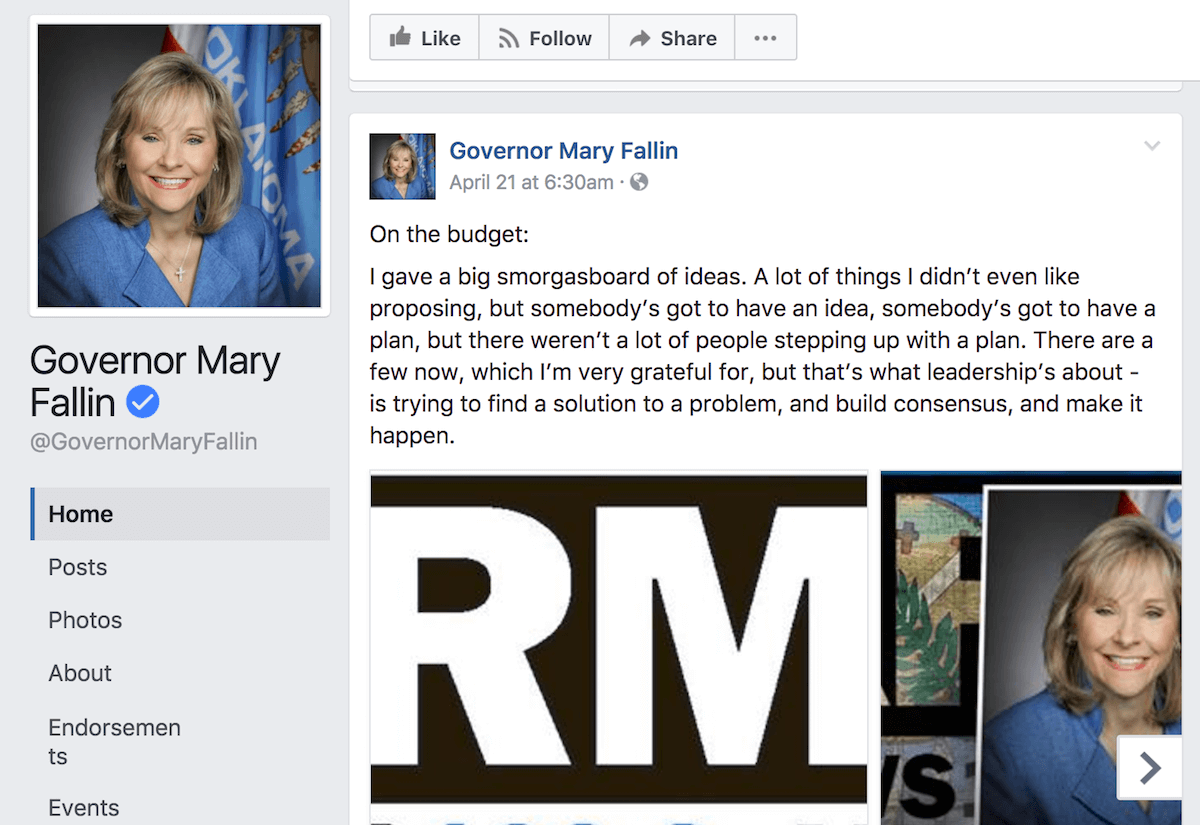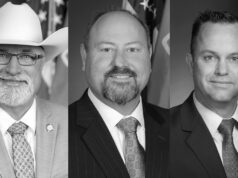
It’s that time of legislative session when action on the budget heats up and stress within the Oklahoma State Capitol causes hurt feelings, odd outbursts and delicious drama.
While the Oklahoma Legislature’s GOP leadership is working revenue proposals through JCAB in a linear manner — bills that require only 51 House votes first, followed by initiatives that would require 76 — the prevailing narrative outside of 23rd and Lincoln focuses on supposed inaction.
From heads of advocacy groups to mouthy diners in random restaurants, we’ve heard a great deal of argument that lawmakers at the Capitol “aren’t doing anything.” Oklahomans complained when lawmakers took time off over spring break to be with their kids, and the annual legislative softball game appears dead since it often results in bad press.
But, mostly, this narrative is not new.
Leadership’s supposed “inaction” on the state budget has long made an excellent foil for the minority party and special-interest groups demanding more money.
In late April and early May, press conference after press conference has historically blasted legislative leaders, and sometimes for good reason. (Does anyone remember House Speaker Charles McCall’s secret plan to fund a teacher pay raise? The public has yet to hear details, but some are speculating McCall also has an idea to end the war in Vietnam.)
Inman, Jones gyrate while Lamb hides
While the machinations of governmental negotiations turn daily behind mostly closed doors, political opportunists have gyrated for the spotlight this year.
Minority House Leader Scott Inman (D-Del City) announced his long-expected campaign for governor Thursday, about two weeks after he and his caucus released a budget proposal called the “Restoring Oklahoma Plan.” It generated a few headlines and received a few Facebook shares, but it neither altered the properties of time nor convinced Republican lawmakers to hand Inman the keys to the school bus.
Days later, Republican State Auditor and Inspector Gary Jones — also a likely candidate for governor — offered his own “sensible” budget plan in a one-page press release. The press-hungry auditor promoted his ideas wildly.
Meanwhile, Lt. Gov. Todd Lamb — who has filed his candidacy paperwork for a 2018 gubernatorial run — has not released a budget plan, nor has he answered NonDoc’s questions about whether he supports the cigarette tax and gasoline tax proposed by Gov. Mary Fallin.
In a bumbling saga of poor public relations, Lamb and his office have declined to make the well-respected politician available for interview with NonDoc since summer 2016. As a result, we have to assume he has no plan of his own, no intention to release one and a general fear of being asked questions about his political beliefs.
Nice qualities for a governor, no doubt.
Who needs enemies with friends like these?
Still, Lamb’s dearth of ideas might be a good thing for Oklahoma in its current budget negotiations. Were Lamb to offer a plan, he might look just as politically opportunistic as Jones and Inman, and it might not change much other than a couple of loyalist legislator votes if the front runner for 2018 said, “Hey, pal, let’s pass this minor gross-production modification for the good of teacher raises.”
Lamb is just one man, of course, and 20 organizations banded together last week to announce the SaveOurStateOK.org initiative. They created a “Budget Blueprint” for three fiscal years. Short of Fallin’s own state-mandated budget book, it’s the most robust set of numbers and proposals passed out in press conference yet.
But that still doesn’t mean it will accomplish anything other than sparking some political sniping.
And boy did it accomplish that. We heard several questions, criticisms and angry admonishments from people connected to and/or associated with House Democrats. They were unhappy that Inman and the “Restore Oklahoma” plan were not invited to attend the Save Our State OK presser, and rumors quickly spiraled out of control about whether research was ripped off from the caucus.
Meanwhile, Fallin responded with her own defensive Facebook post that featured a slight sense of bitterness and a “smorgasboard” of sentence fragments, comma errors and run-on sentences.

Keep your eye on the ball: Big questions remain
Hilarious and useless acrimony aside, lawmakers will head into JCAB today and will likely try to pass more 51-vote revenue measures. Once all of those that can clear the House do so, leadership will be able to tell its rank and file just how much new revenue remains necessary for filling a roughly $900 million budget hole.
How many 76-vote measures — such as cigarette and gas taxes — will be needed and politically viable? Will lawmakers once again bond transportation funding? (Why didn’t they bond more of it last year to avoid spending additional political capital on another vote? Never mind …)
Would a much-discussed gross-production tax increase receive enough GOP support for approval? Inman and the Dems are demanding it. Putting it up for a vote would likely draw their 26 members to support the cigarette tax and other revenue efforts. (Insiders say the House GOP caucus will likely whip the GPT topic at some point soon.)
All of this, of course, is to highlight how GOP leaders are, in fact, working to find passable revenue measures in an uneasy political environment, despite what you might hear in your local bar or during a Capitol press conference. The big questions, simply, are:
- how much revenue can they raise?
- what agency cuts may still be left on the table?
- and just how much infighting and political bickering will erupt over the remaining weeks of session?
Perhaps that final question will be answered first. If the politicians previously mentioned care to take their eyes off the ball, they’re welcome to spend their Monday complaining about this editorial.
The public will surely have their backs, right?





















